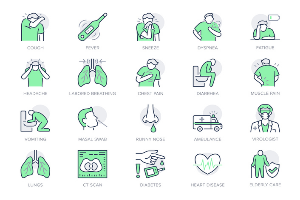
As long as companies are doing business, employee performance and productivity conversations will not go away—regardless of where employees are physically working from. Work has changed dramatically in the last year and so has the performance review. Many nonprofits are still overseeing a remote workforce which means they’ve had to conduct performance reviews remotely as well—one of the more challenging meetings to conduct virtually.
Employees already tend to be nervous when the time comes for evaluation but with a thoughtful approach and the right structure, leaders can make the processes productive (and comfortable). While you may be able to comment on goal achievements, with limited in-person interactions properly evaluating your staff can be challenging and becomes even tougher when you’re delivering feedback while dealing with technical issues, screaming kids, or barking dogs. You want to make sure employees feel at ease by reminding them that it is a two-way conversation simply meant to help recognize accomplishments, identify strengths and weaknesses and to establish future goals. It’s also important to remember that employees have been under extreme and unusual circumstances since the global pandemic presented itself nearly a year ago. By taking into consideration the elements over which your employees had no control and making scoring adjustments, leaders can show both fairness and appreciation for their efforts and dedication to the organization.
Consider these tips when conducting a remote performance review to help make the process more efficient and effective—even in a virtual environment:
Going forward it can be helpful to implement stronger tracking systems such as utilizing online project management tools like Monday.com or Microsoft Teams and scheduling regular check-in meetings to discuss workload, accomplishments, and frustrations.
Performance reviews give employees the feedback they need to improve job performance while also enabling them to work with their managers on career development plans. When done properly, virtual reviews can be highly beneficial to both the employee and the organization—increasing productivity and engagement.

What is inclusion in the workplace? Inclusion is defined as a proactive approach in the recruiting and engaging of people with different perspectives, backgrounds, and demographic identities. Nonprofit leaders see the importance of building a more inclusive workplace as it helps employees feel more comfortable, valued, and productive. Creating a workplace that is welcoming and inclusive, encourages employees to be innovative while also cultivating a culture of accountability.
Having a workplace with a diverse mixture of people who all feel valued within a unified, positive culture can be essential to unlocking an organization’s full potential. Employees have the ability to flourish in a diverse workplace and organizations can benefit from new ideas, new skill sets and employee engagement.
Here’s four strategies to help create and cultivate an inclusive working environment:
1) Applaud Differences Amongst Your Employees: An important way to show employees that you embrace and respect their backgrounds and traditions is to encourage inclusiveness in the workplace. For example, offering a separate space or private room for prayer or meditation. Employees with certain religious backgrounds can use this space to practice daily religious rituals without being disturbed.
2) Train & Support Leadership Team: Leaders play an essential role is encouraging inclusion strategies and efforts. Offering mandatory training and discussion groups to your leadership team is vital as they are acting role models to your employees. These types of trainings can help leaders learn how to better manage a diverse team. Also, it can help leaders become aware of certain biases, teach them how to be an active listener and to actively encourage different viewpoints.
3) Take Time to Listen to Your Employees: To have a better understanding of the needs and wants of your employees, conducting a survey can help highlight where the inclusion and engagement issues currently exist. Taking the time to complete an assessment of an organization’s current demographics and processes can be a great starting point to learn where to apply new strategies that promote inclusiveness.
4) Create a Productive Meeting Protocol: Meetings should be designed to allow everyone in the meeting to feel comfortable to share ideas and contribute feedback. Consider distributing meeting materials in advance and listing out questions and topics to be discussed during the meeting. For workers in different time zones, consider rotating meeting times. This shows consideration to those employees having to start their workday earlier or later in order to attend the meeting.
While introducing these strategies may vary from business to business, the most important thing is that every employee is on the path towards a more inclusive work environment. The potential for positive outcomes when striving for inclusion can be significant, often resulting in new ideas, fresh perspectives and helping employees perform at a higher level.

Question: We are going to hire remote employees in several different states. What must we consider from a tax and employment law perspective?
Answer: Generally, employers must comply with the labor law of the state in which the employee will be regularly performing services and where wages are paid to that employee. There is a common rule of thumb called “boots on the ground,” which implies the regulations would apply to the state where the employee is physically working, including wage and labor regulations for hours worked and overtime, as well as general fair employment practices, termination/final pay rules, and recordkeeping. From an employee perspective, income tax for the state where the employee works (as well as lives) falls under each individual state as well. Note too, that the state where the employee works is generally where the employer should be paying unemployment insurance tax and workers’ compensation coverage.
We recommend additional research with tax and legal experts when expanding into a new state, even with remote workers. The following information offers more details about unemployment taxes and new hire reporting.
Unemployment Taxes (UI)
In many cases, employers should apply the standards of the state where the employee works and resides (where their “boots” rest). However, an employer could also choose to select the requirements of the most generous state in which the business operates or follow the requirements of a more generous internal policy, and apply those rules consistently across all company locations.
Most states will allow a multistate company to pay UI taxes from one location, though this does still require registering with each state and getting approval.
In most states, UI taxes can be paid for all employees under a Reciprocal Coverage Agreement (RCA) in which UI is paid to only one state (i.e. the company’s headquarters) when an employer has employees in multiple states. It appears approval must be sought by each state for each employee for this to occur; however, it can at least provide the company the avenue of paying the unemployment taxes only from one state for all employees working from home in other states.
New Hire Reporting
An employer with employees in more than one state has two options in fulfilling new-hire reporting requirements. Multistate employers may choose either of the following:
Multistate employers who opt to report to only one state must submit new-hire reports electronically or magnetically. These employers must also notify the federal Department of Health and Human Services as to which state they have designated to receive all their new-hire information. The National Directory of New Hires then maintains a list of multistate employers who have elected to use single-state notification.
When notifying the department, the multistate employer must include all generally required reporting information along with the following:
Q&A provided by ThinkHR, powering the UST HR Workplace for nonprofit HR teams. Have HR questions? Sign your nonprofit up for a free 60-day trial today.

Virtual work trends were on the rise even before the Coronavirus outbreak last year. Many employers, however, have been reluctant to offer remote work for a number of reasons—technology setup, company culture, employee morale and management structure to name a few. When the pandemic hit last year, employers were forced to shift gears if they wanted to keep their businesses operating and many transitioned their workforce to work from home almost overnight. The unexpected change left organizations without a plan in place and no time to prepare.
As businesses got back on their feet, many were able to start hiring which meant they had to figure out how to onboard new employees in a virtual environment. Onboarding helps your new hire get familiar with your nonprofit and provides the tools and training they need to start working towards making an impact on the company’s mission. The only difference between in-person onboarding and virtual onboarding is that it’s done mainly through video and email—the goal is still the same.
In a normal environment, the process is often long and tedious—more so when done virtually. There is equipment to ship, software to install, documents to be signed, materials to provide, the list goes on and on. Here are some ways to instantly improve your virtual onboarding strategy:
Virtual onboarding might seem daunting challenging at first, but with thoughtful consideration and a solid plan in place, you can create a successful onboarding plan that guarantees a positive outcome for both the organization and the employee.

While remote work was on the rise even before the COVID-19 pandemic, most employees taking advantage of working from home still had some form of in-person relationship with their employer and fellow teammates. While it is still relatively rare for companies to hire employees to work remote from day one, we can see that this practice is changing. As stay-at-home orders continue in many states, more employers are having to rely on virtual recruitment and finding this will most likely become the new standard for all future recruiting.
From the perspective of talent acquisition and nonprofit business leaders, the most significant challenges being faced by organizations are resulting in changes that will continue after the pandemic. Some of these changes have resulted in unforeseen positive outcomes—creating a whole new outlook on what a day looks like in the office.
Here are four major changes revealed by the global pandemic and the lasting impact they will have on what the future of work looks like:
1) At-Home Working Environment: As organizations adapt to a remote workforce, the more willing they are to make a permanent change going forward. This will have a direct impact on the need for office space; many organizations are already considering downsizing the amount of office space needed, in turn saving money on overhead costs. Organizations should have a thoughtful plan in place prior to making their operation fully remote. By sharing remote working policies with staff and providing additional training to managers overseeing a remote team, you’ll ensure a much smoother transition.
2) Recruiting Becomes Virtual: As we’ve seen in recent months, talent acquisition teams have incorporated new recruitment practices—ranging from interviewing candidates over video, to giving job offers without meeting a candidate in person. Virtual recruiting has proven to have such success it will most likely carry over as a new process post pandemic.
3) Technology is Priority #1: Many organizations have come reliant on advanced technologies to help navigate this new remote working world. Talent acquisition teams have seen how technology has streamlined onboarding processes and how this is the more desired approach by both hiring managers and new employees. While incorporating a more technology-based recruitment system will require more training, it will increase privacy and security.
4) What Does Success Look Like Now: An organization can’t remain a float without their employees and now, more than ever, it’s important to listen and invest in your employees. This pandemic has forced organizations to make necessary investments in technology to ensure a functional working model. In turn creating significant benefits for both employees and their employers.
Now, the question everyone keeps asking is “what will happen when stay-at-home orders are lifted?” While there’s much talk about “getting back to normal,” some have come to terms with the notion that it isn’t most likely to happen. As organizations’ country-wide learn how to make remote work more functional, the possibilities of being able to leverage a larger pool of candidates, particularly those high-skilled hard-to-fill positions, is likely to become increasingly appealing. Talent acquisition and human resources leaders adapting to virtual interviews, offers and onboarding, has streamlined recruitment processes, while saving money. Nonprofit organizations will be able to use these recent changes to improve future recruiting outcomes.

Question: How can we cultivate a diverse workplace?
Answer: A diverse workplace with employees of differing age groups and experience can add to the richness and culture of any workplace. However, “diverse” and “diversity” can mean a host of different things, and unless company leaders agree on what kind of diversity they are seeking, creating cohesive diversity can be tricky. Here are some ideas for best practices to create and maintain a successful and diverse workforce:
Don’t forget to abide by all applicable local, state, and federal laws in regard to diversity and ensure all workplace policies are applied consistently and without discrimination.
Q&A provided by ThinkHR, powering the UST HR Workplace for nonprofit HR teams. Have HR questions? Sign your nonprofit up for a free 60-day trial today.

The ongoing COVID-19 pandemic has created new and unique challenges for employers and their employees. Group health plans and other employee benefit plans are one area of concern during these times. UST HR Workplace powered by ThinkHR has been on the front lines, supporting employers with HR and Benefits advice and compliance guidance through their online resources and on-demand advisors.
Here are some of the most-frequently asked questions received about COVID-19 and benefit plans:
Do all medical plans cover COVID-19 testing? Yes, the Families First Coronavirus Response Act (FFCRA) requires that all medical plans provide 100% coverage of COVID-19 testing. There are no deductibles, copays, or coinsurance. This federal mandate took effect March 18, 2020 and applies to insurance plans and employer self-funded plans, including grandfathered plans. It does not apply to retiree-only plans.
All testing-related services and services, such as consultative visits to doctors (including telehealth), emergency rooms and urgent care centers that lead to an order for testing, and the administration of tests, are covered. Preauthorization is not required and coverage is not limited to in-network providers.
Is treatment of COVID-19 also covered at 100%? It depends. The FFCRA mandate for 100% coverages applies only to services and supplies related to testing. Once diagnosed, however, coverage for any treatment of COVID-19 will depend on each medical plan’s terms and conditions, including any provisions for deductibles, copays, coinsurance, and use of network providers.
Additionally, insured plans are subject to state laws that may be broader than the new federal mandate. A number of states now require that medical insurers cover COVID-19 treatment at 100% (in addition to testing). Many carriers also have agreed to provide 100% coverage even if not required by law. For details, contact your carrier or check the America’s Health Insurance Plans (AHIP) website for the latest updates.
Is a high deductible health plan (HDHP) that waives the deductible for COVID-19 testing still compatible with a Health Savings Account (HSA)? What about coverage for treatment? HDHP must cover COVID-19 testing at 100% per the FFCRA mandate. HDHPs also may be amended to cover treatment of COVID-19 as a first-dollar benefit without deductibles. On March 11, 2020, the IRS announced that pre-deductible coverage of testing and treatment does not cause the plan to lose its status as an HSA-compatible HDHP and does not interfere with the covered person’s eligibility to make HSA contributions.
Many employees are working from home now instead of coming to the office. Can they continue using their Dependent Care FSAs for childcare expenses? Yes, employees can continue using their Dependent Care FSAs provided that the childcare is required for the employee to be able to work. For instance, employees working full time may need the same childcare whether working from home or the office. If, however, the employee or spouse can care for the child while the employee works, the expenses are not reimbursable.
Can employees change their Dependent Care FSA election due to the COVID-19 issues? The IRS rules for Dependent Care FSAs set forth a list of permissible election changes. (Ref: 26 CFR § 1.125-4.) Assuming the employer includes all IRS-permissible change events in its plan document, employees may start, stop, increase or decrease their Dependent Care FSA contribution on account of specific events. Examples of events that are likely to come up due to COVID-19 issues include:
Can employees change their commuter benefits since they are now working from home? Section 132(f) plan, often called pretax commuter benefits, allow employees to change their election, or start or stop contributing, for any reason. Generally, changes made by the middle of the month take effect the first of the next month, but employees will want to confirm their plan’s procedures with the administrator. Note that there is no use-or-lose provision for commuter benefits, so any unused balance now will be available for the employee’s use when they get back to commuting to work.
Many employees have been put on reduced hours or furloughed. Can the employer continue covering them on the group health plan? Many employers and workers are concerned about maintaining group health coverage when work hours are cut due to the current COVID-19 outbreak. Each employer’s case is different, so we suggest the following steps:
Q&A provided by ThinkHR, powering the UST HR Workplace for nonprofit HR teams. Have HR questions? Sign your nonprofit up for a free 60-day trial here.

Question: As we begin to return to work, if an employee is out of the office due to sickness, can we ask them about their symptoms?
Answer: Yes, but there’s a right way to do it and a wrong way to do it. In non-pandemic circumstances, employers shouldn’t ask about an employee’s symptoms, as that could be construed as a disability-related inquiry. Under the circumstances, however — and in line with an employer’s responsibility to provide a safe workplace — it is recommended that employers ask specifically about the symptoms of COVID-19.
Here is a suggested communication: “Thank you for staying home while sick. In the interest of keeping all employees as safe as possible, we’d like to know if you are having any of the symptoms of COVID-19. Are you experiencing a fever, cough, shortness of breath, chills, muscle pain, headache, sore throat, or a new loss of taste or smell?”
Remember that medical information must be kept confidential as required by the Americans with Disabilities Act (ADA). If the employee does reveal that they have symptoms of COVID-19, or has a confirmed case, the CDC recommends informing the employee’s co-workers of their possible exposure to COVID-19 in the workplace (but not naming the employee who has or might have it) and directing them to self-monitor for symptoms. Employers should also follow CDC guidance for cleaning and disinfecting.
Q&A provided by ThinkHR, powering the UST HR Workplace for nonprofit HR teams. Have HR questions? Sign your nonprofit up for a free 60-day trial here.

UST’s new blog series, “COVID-19 Nonprofit Stories,” illustrates how nonprofits and their employees have been coping with the unexpected challenges of the Coronavirus. Each blog spotlights one organization and the personal hurdles and workforce strategies they have encountered throughout this pandemic.
Our next story comes from another dedicated UST member—DARTS. Located in Minneapolis, DARTS provides personalized professional services to the aging demographic in the local Dakota County. By providing transportation and home services to their aging community, DARTS helps participants to lead more independent and fulfilling lives. Their services include such things as light housework, outdoor chores, home repair, caregiving resources, transportation and more.
Q: In general, how has your nonprofit been impacted by COVID-19?
A: DARTS provides services to help older adults stay engaged in the community and live in home of their choice. COVID-19 has caused older adults to isolate themselves and their caregivers are either isolated from their loved one or unable to have respite from them. The need for our services grew and we had to rapidly adapt to be able to provide them safely.
Q: What was the most immediate impact your organization faced during the onset of COVID-19?
A: DARTS provides bus rides for groups of older adults, as well as individuals. The group rides stopped immediately on March 13. We took our bus capacity to help fill a need that older adults were not able or willing to go out to food shelves to get groceries by partnering with area food shelves to help deliver those food supports.
Q: What do you see as the long-term impact COVID-19 will have on your organization?
A: How we gather as older adults will be affected for months to come and so we are becoming more nimble with technology to supplement in-person meetings and group gatherings. COVID-19 will help those with means to rely more on technology and it will make the gap larger between those who have resources and those who do not.
Q: How have you addressed employee mental health and wellness during this time?
A: We added intentional time during team meetings to talk about COVID related stress and social justice issues. We hold regular optional coffee breaks so that people can still connect, leaders are proactively reaching out to their team, we are allowing flexibility for those who can to work from home and we got brightly colored DARTS shirts for employees – a cheerful reminder as to how important they are to our community.”
Keep an eye out for future renditions of “COVID-19 Nonprofit Stories,” as we continue to gather insight from the nonprofit sector. In the meantime, check out our COVID-19 Resource Center for more nonprofit-specific content—including unemployment insights, workforce trends, employee wellness tips, COVID-19 FAQs and more!

Question: Can we reduce pay because of an economic slowdown due to COVID-19?
Answer: You can reduce an employee’s rate of pay based on business or economic slowdown, provided that this is not done retroactively. For instance, if you give employees notice that their pay will change on the 10th, and your payroll period runs from the 1st through the 15th, make sure that their next check still reflects the higher rate of pay for the first 9 days of the payroll period.
Nonexempt employees (those entitled to overtime) – A nonexempt employee’s new rate of pay must still meet the applicable federal, state, or local minimum wage. Employees must be given notice of the change to their rate of pay, and some states require advance notice.
Exempt employees (those not entitled to overtime) – An exempt employee’s new salary must still be at or above the federal or state minimum for exempt employees. The federal minimum salary is $684 per week. Several states have weekly minimums that are higher than that (California and New York, for instance, are in the $1,000 per week range). The minimum may not be prorated based on hours worked.
Exempt employee reclassification – If an exempt employee has so little work to do that it does not make sense to pay them the federal or state minimum (or you simply cannot afford to), they can be reclassified as nonexempt and be paid by the hour instead. This must not be done on a very short-term basis. Although there are no hard and fast rules about how long you can reclassify someone, it is recommended that you don’t change their classification unless you expect the slowdown to last for more than three weeks. Changing them back and forth frequently could cause you to lose their exemption retroactively and potentially owe years of overtime.
Employees with contracts or CBAs – If employees have employment contracts or are subject to collective-bargaining agreements (CBAs), you should consult with an attorney before making any changes to pay.
Q&A provided by ThinkHR, powering the UST HR Workplace for nonprofit HR teams. Have HR questions? Sign your nonprofit up for a free 30-day trial here.

UST maintains a secure site. This means that information we obtain from you in the process of enrolling is protected and cannot be viewed by others. Information about your agency is provided to our various service providers once you enroll in UST for the purpose of providing you with the best possible service. Your information will never be sold or rented to other entities that are not affiliated with UST. Agencies that are actively enrolled in UST are listed for review by other agencies, UST’s sponsors and potential participants, but no information specific to your agency can be reviewed by anyone not affiliated with UST and not otherwise engaged in providing services to you except as required by law or valid legal process.
Your use of this site and the provision of basic information constitute your consent for UST to use the information supplied.
UST may collect generic information about overall website traffic, and use other analytical information and tools to help us improve our website and provide the best possible information and service. As you browse UST’s website, cookies may also be placed on your computer so that we can better understand what information our visitors are most interested in, and to help direct you to other relevant information. These cookies do not collect personal information such as your name, email, postal address or phone number. To opt out of some of these cookies, click here. If you are a Twitter user, and prefer not to have Twitter ad content tailored to you, learn more here.
Further, our website may contain links to other sites. Anytime you connect to another website, their respective privacy policy will apply and UST is not responsible for the privacy practices of others.
This Privacy Policy and the Terms of Use for our site is subject to change.
UST maintains a secure site. This means that information we obtain from you in the process of enrolling is protected and cannot be viewed by others. Information about your agency is provided to our various service providers once you enroll in UST for the purpose of providing you with the best possible service. Your information will never be sold or rented to other entities that are not affiliated with UST. Agencies that are actively enrolled in UST are listed for review by other agencies, UST’s sponsors and potential participants, but no information specific to your agency can be reviewed by anyone not affiliated with UST and not otherwise engaged in providing services to you except as required by law or valid legal process.
Your use of this site and the provision of basic information constitute your consent for UST to use the information supplied.
UST may collect generic information about overall website traffic, and use other analytical information and tools to help us improve our website and provide the best possible information and service. As you browse UST’s website, cookies may also be placed on your computer so that we can better understand what information our visitors are most interested in, and to help direct you to other relevant information. These cookies do not collect personal information such as your name, email, postal address or phone number. To opt out of some of these cookies, click here. If you are a Twitter user, and prefer not to have Twitter ad content tailored to you, learn more here.
Further, our website may contain links to other sites. Anytime you connect to another website, their respective privacy policy will apply and UST is not responsible for the privacy practices of others.
This Privacy Policy and the Terms of Use for our site is subject to change.